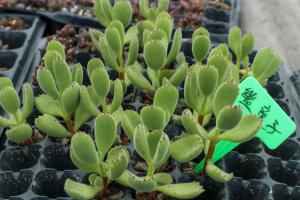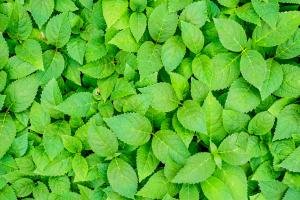How to Propagate a Hibiscus Plant
Hibiscus plants are wonderful additions to any garden or indoor space. Whether you are an experienced gardener or just starting out, propagating hibiscus plants can be a fun and rewarding experience. In this article, we will guide you through the process of propagating a hibiscus plant.
Preparing the Cuttings
The first step in propagating a hibiscus plant is to obtain cuttings from an existing plant. You will need a sharp, clean pair of pruning shears or scissors. Look for stems that are healthy, firm and about 4-6 inches long. Cut the stem at a 45-degree angle, just below a leaf node.
Remove the Lower Leaves
Once you have your cuttings, it's time to prepare them for planting. Start by removing the lower leaves from the stem. These leaves may rot in moist soil, which can interfere with the growth of your new plant.
Apply Rooting Hormone
Dip the cuttings in rooting hormone before planting. Rooting hormone is a substance that helps the cuttings form roots. You can find rooting hormone at your local garden center.
Plant the Cuttings
Now that your cuttings are ready, it's time to plant them. Fill a small pot with a well-draining soil mix. Make a hole in the soil using a pencil or your finger. Insert the cutting into the hole and gently press the soil around it. Water the cutting thoroughly.
Provide Adequate Lighting
Place the pot in a location that receives bright, indirect sunlight. Hibiscus plants require plenty of light to grow and thrive. You can also use a grow light if you don't have a sunny location.
Water and Fertilize
Make sure the soil stays moist, but not too wet. Water the plant whenever the soil feels dry to the touch. Once the plant starts to grow, you can begin fertilizing it with a balanced fertilizer. Follow the instructions on the package for application rates.
Transplanting
Once your hibiscus cuttings have developed roots and have grown a few inches, it's time to transplant them into larger containers or your garden. Choose a location with well-draining soil and plenty of sunlight. Water the plant frequently and fertilize it regularly with a balanced fertilizer.
Conclusion
Propagation is the process of reproducing a plant from a part of an existing plant. If you follow the steps above, you can successfully propagate a hibiscus plant. With proper care and attention, your new plants will grow into healthy, beautiful specimens that will provide you with joy for years to come.

 how many times do yo...
how many times do yo... how many planted tre...
how many planted tre... how many pine trees ...
how many pine trees ... how many pecan trees...
how many pecan trees... how many plants comp...
how many plants comp... how many plants can ...
how many plants can ... how many plants and ...
how many plants and ... how many pepper plan...
how many pepper plan...






























